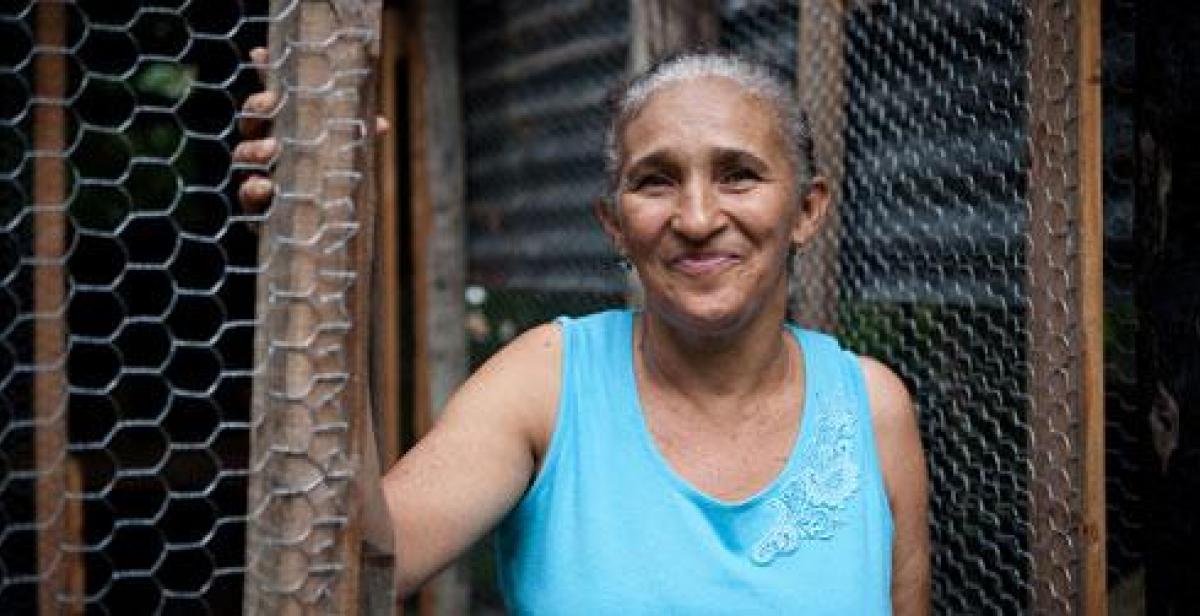The anticipation ahead of the launch of the High Level Panel’s report was palpable both at Progressio HQ and for those following #post2015HLP. After nine months of work the panel, made up of 27 people from politicians to private sector professionals, presented their report to Ban Ki Moon in New York.
At 69 pages in length and titled 'A new global partnership: Eradicate poverty and transform economies through sustainable development' the report sets out a comprehensive and ambitious vision for a fair and sustainable future. But how does the report match with what Progressio has been calling for over the past nine months?
Key themes
The report outlines a universal agenda that needs to be driven by five transformational shifts, first and foremost to ‘leave no one behind’. The panel believes that the elimination of extreme poverty is achievable and that the post-2015 development framework must finish the job of the Millennium Development Goals (MDGs) and move from reducing to eradicating poverty. Progressio warmly welcomes this ambition.
Secondly, the panel advocates that environmental sustainability must be put at the core of all future development. The report states that ‘developing a single, sustainable development agenda is critical’. Progressio has been calling for this for over a year and is delighted to see the panel acknowledge the need for an integrated framework that seeks an end to environmental degradation and development within the limits of the planet’s natural resources.
Water for food and livelihoods
Getting down to specifics, what happened to water for food security and livelihoods? Unfortunately the report isn’t fully waterproof. The panel have proposed 12 goals for further discussion and 54 targets. Whilst Progressio welcomes a goal to achieve universal access to safe drinking water and sanitation, we are disappointed that the call for sustainable and equitable access to water for smallholder farmers has not been heard.
Water gets an impressive 77 mentions within the report. However, the count for agriculture, smallholder farmers and the water required for irrigation is very low.
Progressio has been calling for water to be looked at holistically. Water is critical for growing food and sustaining rural livelihoods, especially for women who tend to be responsible for these tasks.
"It’s so important to continue this work,” says Milagros Gomez, (pictured above) who has been supported by Progressio DW Karina in the Dominican Republic to raise chickens and grow a vegetable garden, “We must continue to support rural women’s associations, which receive little support and are usually excluded or marginalised.”
The Panel's report does recognise the need for increased access to irrigation within a food security goal but this cannot be realised without the sustainable management of water and looking at the competing demands on finite water resources. Access to water for agriculture must therefore be an indicator within a water goal.
Improving sustainable development
It is interesting that the panel emphasise the need for a data revolution and vastly improved monitoring systems for sustainable development. In the case of water this is essential. One of the challenges of addressing water security is the lack of data available for the quantity and quality of water available in any given location. Investment of resources in developing these monitoring systems is key to managing water, and other natural resources, much more equitably and efficiently in the future.
Tackling climate change
It is also encouraging that the panel recognise that ‘above all, there is one trend – climate change – which will determine whether or not we can deliver on our ambitions.’ However, how to tackle climate change through targets for mitigation or finance for adaptation is missing from the report. The report steers clear of recommending a goal on climate change, yet we know that changing climate is already having an impact on the world’s poorest people and requires urgent action.
Chris Mweembe, a Progressio DW with Environment Africa in Zimbabwe, thought that "The report should have raised issues of accessibility, frequency and reliability of climate related information to farmers. This information should be presented so it can be easily interpreted by farmers in all parts of the country for them to make informed decisions."
Whose concerns does the report reflect?
Finally, did the panel consult with the poorest and most marginalised people who are directly affected by poverty and inequality? The report goes to great lengths to explain that the authors consulted with and listened to the voices of thousands of people all over the world. Progressio has been involved in some of those consultations and welcomes, for the most part, the views expressed by communities that we work with.
Working together to eradicate poverty
Looking ahead, the report speaks with great optimism, stating that ‘Progress on this scale is possible, but only if governments (at all levels), multilateral institutions, businesses and civil society organisations are willing to change course and reject business as usual.’ The report sets out a strong roadmap, but in order to turn this vision into reality, governments must use the next two years to seek consensus, let go of self-interest and unite behind a plan to eradicate poverty and develop within environmentally sustainable limits.
The report can be read in full here
Read Progressio's initial reaction to the report here
Photo: Milagros Gomez by her chicken coup in the Dominican Republic © Fran Afonso/Progressio



